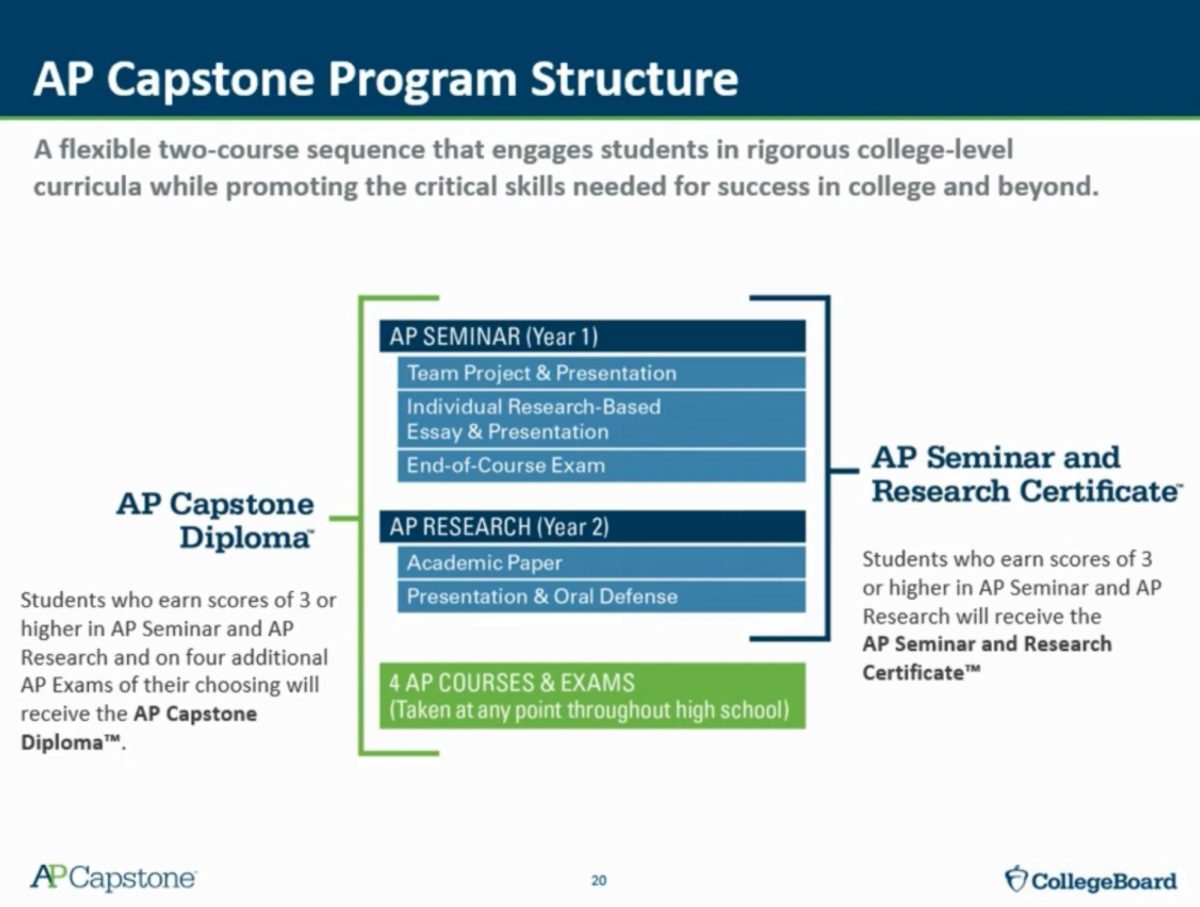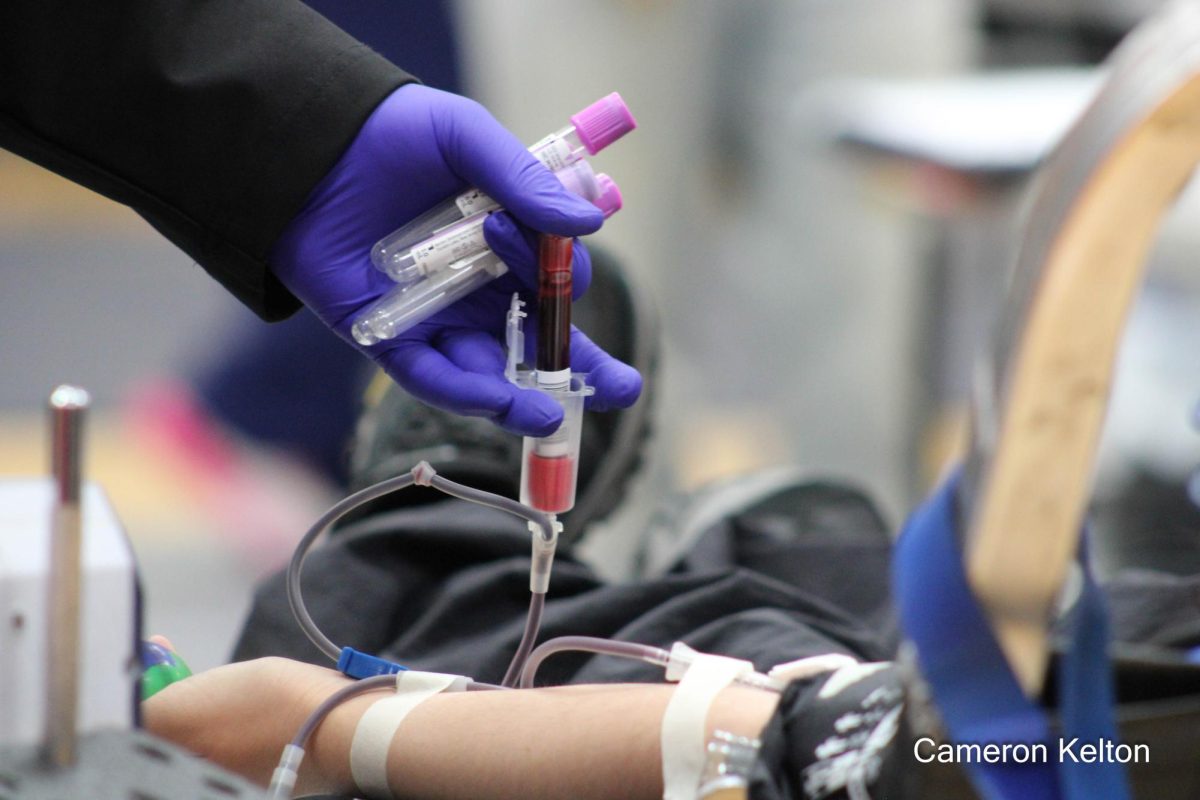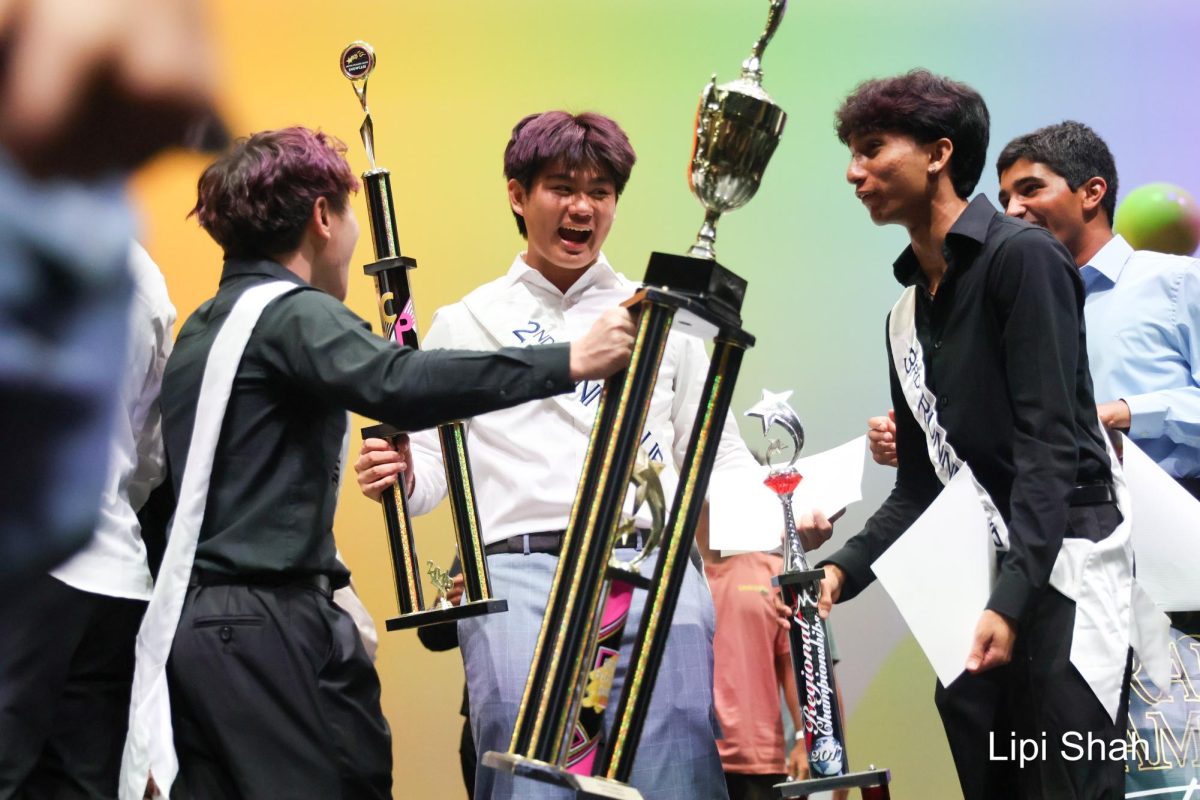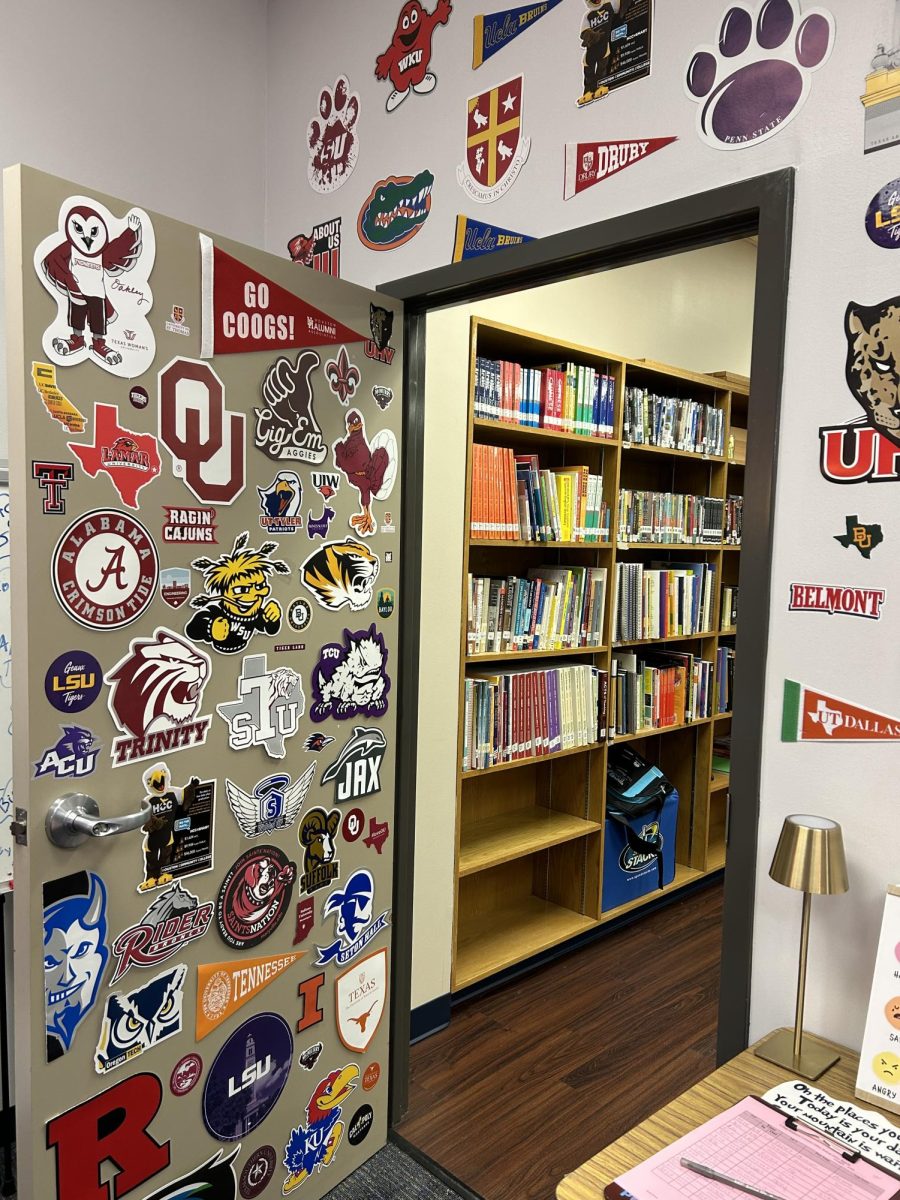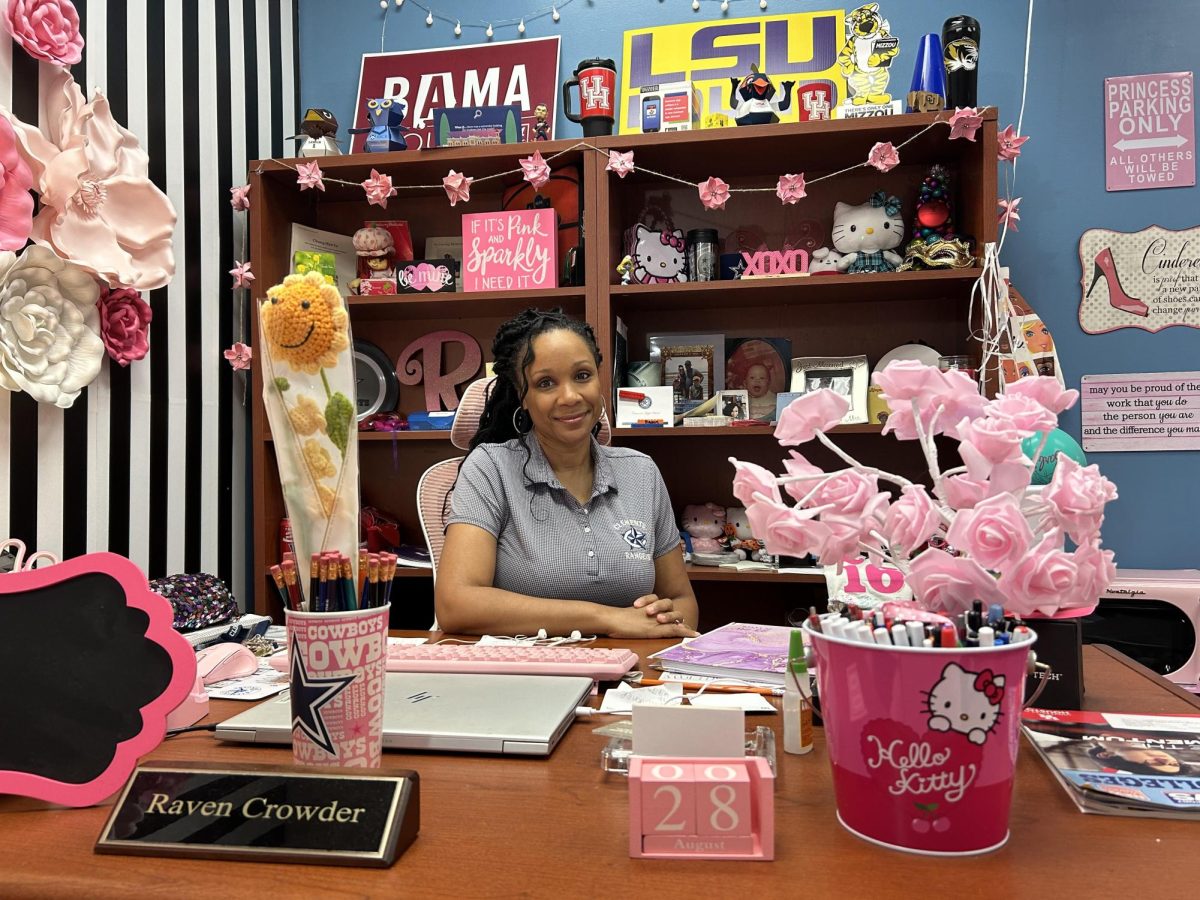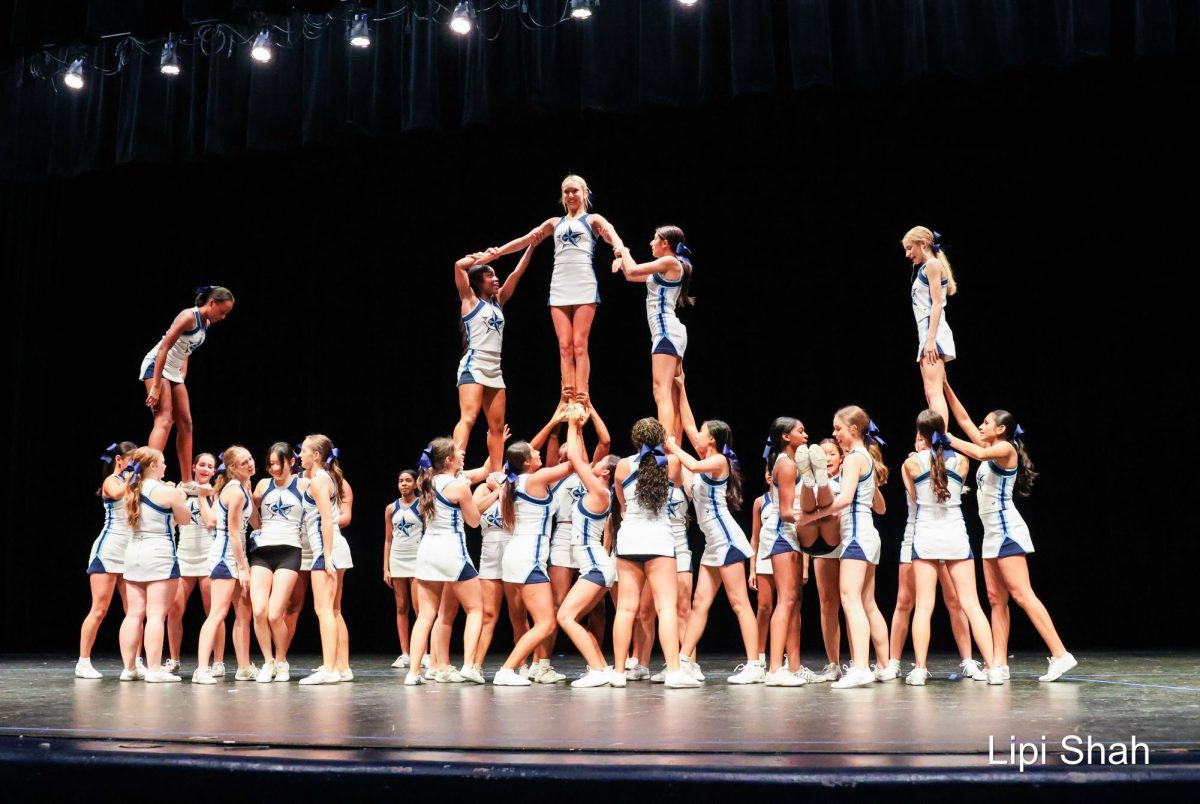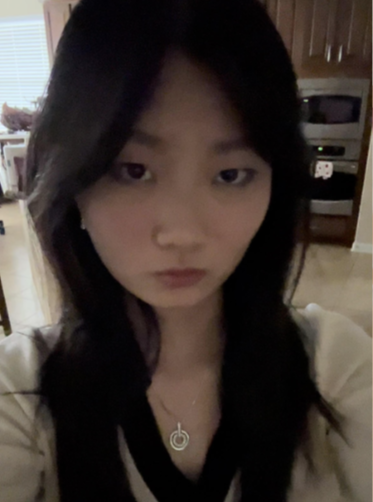AP Capstone—a distinguished two-year AP Program, consisting of AP Seminar and AP Research—will be offered to students beginning this year’s course selection, due Friday, Feb. 14. There will be a meeting for all students interested tomorrow in 1118 with English teachers Heather Hill and Glenys McMennamy, who will teach AP Capstone.
AP Seminar is geared toward high-reaching, passionate rising sophomores.
“Seminar is the prerequisite for research,” Hill said. “Seminar is an introduction to the research skills, to making an argument [and] synthesizing sources to support that argument. Research goes into the next level where students…are going to conduct original research [to bridge a problem]. They have to be able to come up with a methodology that is aligned with the purpose of the research that they can describe in a way that is replicable and ethical, and then come to a new understanding.”
Essentially, Seminar teaches the necessary knowledge a student needs going into Research – an independent, “scaled down version of a graduate thesis or dissertation,” as Hill puts it.
“[Research] could look like experiments that you do in a lab, if you have access to that, or something that you can run at home,” Hill said. “It may be something more using secondary sources, like doing a content analysis or gathering data from different sites and running a statistical analysis on that. It’s just a unique experience.”
Exclusive to AP Capstone is its end product, the Capstone Diploma, which students receive after passing both Seminar and Research and scoring a three or higher on four other AP tests. Hill said the Capstone Diploma is “a great distinguished aspect to [add to] any resume.”
“Ultimately, it’s another certification you get along with your diploma that College Board provides,” Hill said. “It’s something that you would put on your college applications, which is why Capstone is typically taught or encouraged to be taught in the sophomore-junior split…it helps your applications stand out from others, because it is a really big achievement.”
On top of the Capstone Diploma, Hill said that skills taught in Seminar and Research “are applicable to anything and everything,” especially in what The New York Times calls the current “Age of Misinformation”.
“We all need to know how to evaluate a source for trustworthiness and bias,” Hill said. “We all need to be able to critically read something and come to a conclusion…especially with social media, like there’s so much news that is…fake, that is put toward us now.”
Since students can personally select their research topic, it offers students the opportunity to learn the avenues of a potential career early or delve deep into a passion they have. Hill said there’s skills offered that “will fill anybody’s need, whatever path you decide to go down.”
“When I think of a research paper prior to AP research, what I was actually thinking of is what we would call a literary analysis paper or a literature review, which is a synthesis of these existing sources making an argument, and that’s it,” Hill said. “That is not technically a research paper. A research paper starts with [a] literature review, and then goes on to describe the methodology, provide the results, and the analysis of those results.”
As an independent research class, the AP Exam score wouldn’t all hinge on the conventional testing component. According to Hill, Seminar would consist of several presented components, which are then judged and added up to the final score.
“There’s a team project and presentation, which together counts as 20% of the AP score,” Hill said. “Then there’s the individual essay and presentation. That’s 35% of the AP score. And then they have an end of course exam, which is 45% of the score, which is, that’s the synthesis essay part from AP Lang. They are given a bunch of sources and they create an evidence-based argument.”
In AP Research, however, students are assessed based on their academic paper and presentation, then followed by an oral defense. According to College Board, the academic paper should be between 4,000–5,000 words and the verbal element takes approximately 15–20 minutes.
“AP research would start off with me breaking down the rubric,” Hill said. “We would spend a lot of time throughout the year scoring sample papers so that they could see the structure of the paper because it’s not like any other paper that they’ve written before.”
For both classes, the first portion of theyear is spent exploring topics of interest. Once a topic is selected, Hill will begin meeting one-on-one with students to narrow the topic down.
“[They’ll] find as many peer-reviewed academic sources as possible about that topic, to learn about it, to narrow it down even more in order to figure out what that gap is, like what’s not being researched,” Hill said. “Sometimes the gap is simply an age group, a certain demographic that has not been explored.”
Once the gap has been identified, students will explore the various methodologies and write an inquiry proposal form.
“[On the inquiry proposal form,] you’re required to provide sources and justify all your choices,” Hill said. “There can’t be anything arbitrary. So if you’re gonna choose to survey a group of people, you have to be able to prove that you understand the sample size and why that demographic and how that is going to accomplish your purpose of filling the gap that you identified, et cetera.”
In the spring, students begin conducting original research.
“By November, there’s very little lecture on my part,” Hill said. “We’re scoring sample papers occasionally. I’m having them do some reading from textbooks occasionally to help them with whatever stage they’re in. Otherwise, there’s very little direct instruction.
Most of the time, students will be working on their project independently. There’s still one-on-one meetings to confirm progress.
“I also have students fill out like what I would call a process log, where they are summarizing what they’ve done so far, letting me know where they are in their process so that I can, one, give them feedback more easily, and two, just to make sure that they’re not procrastinating too much,” Hill said. “One of the biggest problems is if you’re a big procrastinator, if you’re overwhelmed by this idea of picking a topic to research, then you create this big hole that’s almost impossible to pull yourself out of, which happened to a lot of students at Carnegie.”
The grading aspect would also undergo some changes. While Hill is not entirely sure of how the system will be structured, she is sure writing and presenting would be involved.
“When I taught AP research, one of my big grades every term was a practice presentation of their topic, so they could get my feedback, but also they’d get peer feedback, kind of what we did in Lang for the documentary project,” Hill said. “Because then if there’s a perspective or a lens on your argument that you had not considered, all these people that are watching and paying attention, hopefully one of them will be able to bring it up and address it, which will just strengthen your argument as you continue to work on it.”
Over Hill’s fifteen years of teaching Capstone, one of her favorite projects has been a student who researched mukbang videos.
“I had never even heard of [it],” Hill said. “I was like ‘What?’ And so she opened this whole world to me on YouTube, and I was like ‘This is bizarre and crazy’ and I loved it. So that was fun.”
Prior to coming to Clements, Hill taught Texas Performance Standards Project, a Gifted & Talented program, at Carnegie. When College Board first created AP Capstone, she then transitioned into specializing in AP Research as well.
“The administration and the counselors pushed for us to bring in Capstone, so a couple teachers and I, we went to the training,” Hill said. “They started off with Seminar, and then I followed up with Research the next year, and it was successful. So then we opened it up to everybody, and just the nature of those kids were just like…‘if I can do an AP class, I’m going to do that.’”
Hill said she predicts Clements will follow in a relatively similar trajectory as that of Carnegie.
“It’s been nice to come back and teach English,” Hill said. “I haven’t taught English in so long. I missed it in a lot of ways, so I’m hoping I can have a little bit of both…but we’ll see what happens. I’ll do whatever’s needed. But I’m excited to get back to research, because I learn so much every year. Every kid has a different topic, and most of the time I know nothing about their topic. So when I work with them one-on-one, I’m learning from them. And I think that’s just a really cool opportunity…I know Clements kids will do wonderful and surprise me.”
Years ago, a course similar to AP Capstone was offered to students. The mandatory course was sponsored by Global Studies Academy.
“I taught the class for seniors,” English teacher Glenys McMennamy said. “It was [also] called Capstone, but it wasn’t a two-year course…I taught the AP English course where kids were cohorted together, and so the work that we did in AP Lang was a little bit more geared toward global topics.”
While the length of the courses are different, there is significant overlap in other aspects, like the “outside-of-the-classroom experimental direction,” as McMennamy puts it. The core focus—diving deeper into students’ passions—remains the same.
“[Students] would either find an internship, or do service learning, or actually get a job…that would be within the field, so that they could learn—from either doing or shadowing someone—more about the field in the real world,” McMennamy said. “[Then] they would incorporate that into the research work and writing that they were doing.”
While Hill is planning to follow the first round of students from AP Seminar to AP Research, McMennamy will step in for the AP Seminar next year.
“It’s super encouraging to see students find something and actually test out a bit what they want to do in their later life and career,” McMennamy said. “[Sometimes, they would] find, you know, like this is something more exciting than I realized, or that this is not exactly the way that I want to go, and refine their plans about their future through like real-life tasks, working with grown-up people, or working with materials that challenge them in a way that others don’t.”

